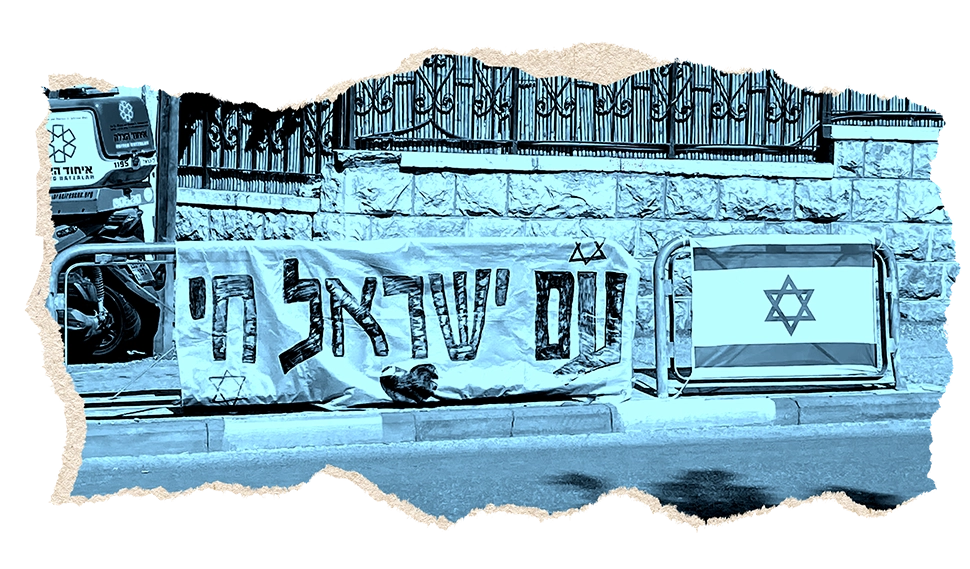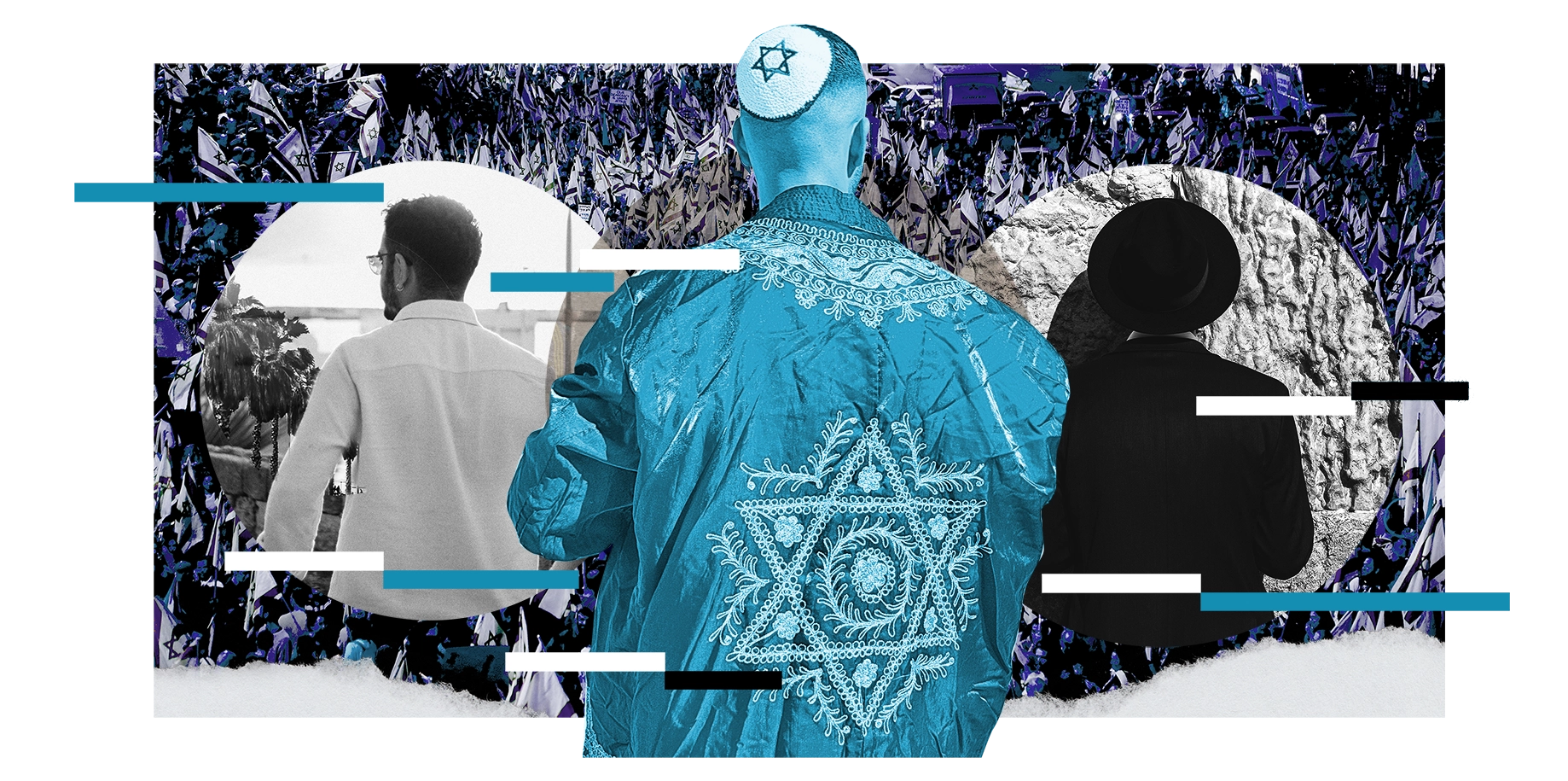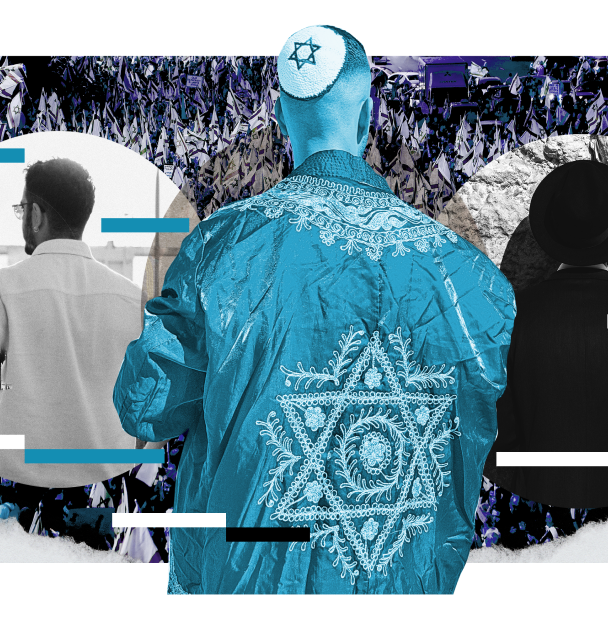For many years, the perspectives of the Mesorti-Mizrahi public, which constitutes about one-third of Israel’s Jewish population, were excluded from public discourse on civil society. More recently, especially after the publication of my book on Sephardic Zionism, I have been invited to speak to various groups to represent Mesorti-Mizrahim and share our perspectives. This is a welcome change. Historically, representation had been limited to what former Israeli President Reuven Rivlin myopically described as “the four tribes” that make up Israeli society: the secular, Orthodox Jews, the Haredim, and the Arabs.
The idea that there are only four foundational groups in Israel has become irrelevant as a simple matter of demographics — one-third of Israelis identify as “traditional (religious)” or “traditional (non-religious)” in official state surveys that ask about religion. The absence of a Mesorti-Mizrahi voice from Israel’s civic discourse results from the exclusion of the public that represents this voice. But there is also another reason for this absence, which stems from the characteristics of the Mesorti-Mizrahi public itself: Mesorti-Mizrahim never have perceived ourselves as a distinct tribe, group or sector. By nature, we are diverse and pluralistic, and we hold a multitude of non-competing dualities. We are religious and secular, conservative and liberal, traditional and modern. We therefore do not fit easily into any of the binaries framed within the concept of the four foundational groups. As a result, we do not seek to be classified as a group; instead, we wish to be viewed as a hybrid, committed to bring divergent communities together.
In my lectures and in my book, I highlight that the most important role of Mesorti-Mizrahi voices during these challenging times is to prevent a sectarian division and civil war in the State of Israel, and to promote a better understanding of the Jewish-Arab conflict. I encourage those who I meet to step away from binary thinking and toward a more unified approach that models the values of plurality inherent to Mesorti-Mizrahi culture.
.
In the past year, the internal divides between Jewish communities in Israel reached its peak with the rise of the right-wing, religious government coalition intent on reforming the judicial system, a step that led to an unprecedented protest movement from the opposition. This internal struggle brought Israel to a vulnerable and precarious place — a lack of trust among Israelis and the feeling among many that there is no way to bridge the gap between the “State of Judea,” which encompasses the supporters of Prime Minister Benjamin Netanyahu’s coalition government, and the “State of Tel Aviv,” which represents the more liberal opposition.
One of the conversations I facilitated during this troublesome time took place during a college seminar specifically tailored for the first generation of family members attending college, most of whom come from Mizrahi backgrounds. I asked the students to imagine a situation in which Israel is completely divided and every citizen is required to choose between living in the religious and conservative “State of Judea” or the secular and liberal “State of Tel Aviv.” Half of the students chose the “State of Judea” and half chose the “State of Tel Aviv.” But one student rebelled.
“I refuse to answer,” she declared. ”I am liberal and in favor of freedom, but if I want to live in a place that is only liberal and secular, I can move to Berlin or New York City. Our parents did not come all the way to Israel to live in a non-Jewish country. So what will I do if we reach such a division? I will sit in the middle to try to prevent the split.”
After talking for a few minutes, about one-third of the students in the class joined her side.
I believe that this third group of students largely represents the Mesorti-Mizrahim in Israel. This community is characterized by moderation and a preference for unity over strict ideologies, but has found itself faced with a binary choice between two sides. Some Mesorti-Mizrahim may identify with one side completely, but others relate to both to various degrees.
The extremism that the Israeli public has witnessed in recent years emphasizes the need for a center with both historical and Jewish depth, based on the roots of the Sephardic tradition that for years refused to split into definitions of religious and secular.”
An important question faces us: Is it within the capacity of the Mesorti-Mizrahi — a group that is not rich in political power — to stand in the middle and be the ones to preserve the Jewish and democratic formula of the State of Israel?
Mesorti-Mizrahim have thrust ourselves into the role of acting as a bridge between the “State of Judea” and the “State of Tel Aviv.” This role of bridge-builder, however, becomes increasingly complex because Mizrahim — having long suffered discrimination at the hands of Israel’s Ashkenazi secular elite — are active participants in the internal divides that have plagued Israel recently. After all, the judicial system reform debates are fueled by the historical tensions between Mizrahim and Ashkenazim.
Journalist Avishai Ben Haim defined these tensions as a struggle between “The First Israel” and “The Second Israel.” (Full disclosure: I edited Ben Haim’s book.) “The First Israel” consists of the powerful group in society — Ashkenazim, secularists, and upper-class who have control over the power centers of the media, bureaucracy, the legal system, and academia. On the other side stands “The Second Israel,” which is composed roughly of large parts of the lower- and middle-class, religious and ultra-Orthodox public in Israel. Political power has shifted toward “The Second Israel” since the last elections that formed the recent Likud-Shas coalition government in the Knesset.
Ben Haim posits that since 1977, when “The Second Israel” for the first time was able to gain power and voice through Menachem Begin (and later through Likud), the Ashkenazi secular elites have been working to weaken the power of the elected government, creating routes that bypass Israel’s democratic principles. The judicial system is the one leading this move by encroaching on the power of the Knesset and targeting the elected officials of “The Second Israel,” regarding them as criminals (for example, Likud leader Benjamin Netanyahu and Shas movement leader Aryeh Deri).
In his book, Ben Haim provided theoretical language for a large part of the right-wing in Israel, which in the past was careful not to openly carry the Mizrahi flag. The right-wing today is fed up more than ever, filled with religious and ideological passion but also charged with class rage. Ben Haim imported the Marxist critical discourse that flourished especially in the academic left in the United States. In the ideological conversion that Ben Haim made to this idea, he emphasized that the goal of “The Second Israel” is not to overwhelm “The First Israel,” but rather to promote the Mesorti-Mizrahi message of unity and share the sweetness of Mizrahi heritage.
Ben Haim’s theory provoked harsh reactions from the center and left, even among Mizrahi activists who share with him the position that the Mizrahi issue is at the root of the judicial reform debate. Mizrahim on the left claim that the alliance between the conservative right and the ultra-Orthodox contributes nothing to the Mizrahi people except radicalization and neglect of the same moderation that Ben Haim himself promotes. Indeed, it is difficult to believe that the right-wing leaders of the legal reforms — Yariv Levin, Simcha Rothman and Benjamin Netanyahu, all three Ashkenazim — are interested in the welfare of the Mizrahi public. Instead, they are just capitalizing on our sentiments and forming this alliance to meet their own political ends, which involve defying the secular left-wing that manipulates the centers of power in Israel.
The ethno-class Marxist language adopted by the Mizrahi Right is based on a painful historical experience of inequality, silencing and exclusion of the Mesorti-Mizrahi public. Many on the right feel, even if Mizrahim have made significant progress since the 1970s, they are still very far from achieving equality. I believe that embracing this ethno-class language is like a double-edged sword because it weakens the main goal of the Mesorti-Mizrahi movement, which above all else is the realization of unity among the people of Israel. Analyzing Israel’s internal inequalities with Marxist tools and language may express truths, but it causes damage by adding an inflammatory element into the Israeli discourse.
In addition to the Mizrahi Right (the Likud-Shas coalition) and the Mizrahi Left (those supporting the protests against the government), we now can find a third group: a Mizrahi Center, which represents a large part of the Mizrahi public. The spiritual head of this movement is philosopher Meir Buzaglo, a faculty member at Hebrew University of Jerusalem. This group finds expression through civic organizations that put the Mesorti-Mizrahi message of moderation at the top of their agenda — Tikun, Kulna and Tur ha-Zahav among them. This, of course, also is the approach of the student I mentioned earlier who protested against the division of Israel into the “State of Judea” and the “State of Tel Aviv.”
As a Mizrahi activist, I feel that the internal crisis emphasizes the necessity of this middle ground, which is built on a well-established Sephardi moral of unity, not some type of desperate default compromise. The extremism that the Israeli public has witnessed in recent years emphasizes the need for a center with both historical and Jewish depth, based on the roots of the Sephardic tradition that for years refused to split into definitions of religious and secular. While some voices in Israel are calling for the abolition of either side of the Jewish and democratic state equation, we Mesorti-Mizrahim are calling to strengthen both sides. During the peak days of the protests, we launched a social-media campaign, “I’m also standing in the middle,” and later called for the establishment of a unity government that will implement the changes that I believe the majority of the public supports. This can be achieved through the exercise of dialogue and the recognition of areas of agreement.
The protesting voices from the left and the staunch supporters of the current government from the right have worked to thwart any efforts at negotiation. Instead, they have led an approach that excludes any compromise. Each side’s desire for a decisive victory is very prominent, yet we in the Mesorti-Mizrahi movement stand behind a proposal for a politics of hospitality, again rooted in Sephardi philosophy and tradition. This is a politics that aims at agreements and sees the internal debate in Israel as a dispute between people who share a common essence and common intention. Our approach is aimed at reducing the mistrust that is spreading like an epidemic within the Israeli public.

Note: The author wrote his original article in September and October 2023, and added new content after Hamas waged war in Israel. The new content begins here:
I wrote the main part of this article before the outbreak of the Simchat Torah war, which cleared the deck and made us all rethink all our past positions. While I was writing the text, I knew that Israeli society had reached a point where only an external threat would succeed in reminding us of everything we have in common. Indeed, so sad to say that this is exactly what happened. When you look at the mobilization of the Israeli people in the days after the brutal attack by Hamas, you realize that this nation is really like a family.
Hamas reminded us that, as far as they are concerned, Jews have no right to live in the areas Hamas dreams of as its own empire. Radical Islam does not distinguish between right-wing and left-wing Israelis, kibbutzniks or residents of the Israel periphery — we are all just mortal Jews to them.
We can only hope that we will wake up and realize that our internal tension led us to an historical point of weakness that opened the door for an external attack. The painful history of the Jews returns and warns us that in days of internal division, we are extremely vulnerable.
But this war will pass, and I believe that we will come out of it stronger. When we gather to pick up the pieces, we will have to do a collective soul-searching. At that moment, the divisive voices will return and try to use the tragedies to prove that they were right and that the horrors are the fault of the other side. But I hope these voices will be only background noise amid a broader understanding that Israel does not have the privilege of being immersed in an internal struggle that escalates from moment to moment.
Out of the silence after the war, Mesorti-Mizrahim will rise as a healing and soothing voice against the extreme politics of subjugation. We will bring a familial and unifying approach of hospitality, a connection to Jewish heritage. We will be the means to connect the various groups of Israel — as well as Israel with its neighbors — to serve those who wish to live in a Middle East free of fundamentalist terrorism.
This article has been translated from the author’s primary language of Hebrew.



